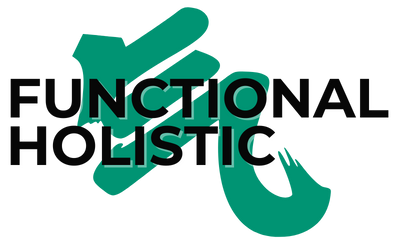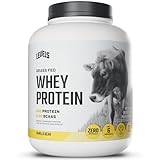The Best Way to Use Protein to Build Muscle (Science-Based)


Protein plays a critical role in muscle growth, recovery, and performance. Using protein to build muscle effectively requires proper intake, timing, and quality. While general recommendations suggest a daily intake of 0.8 grams of protein per kilogram of body weight (0.35 grams per pound), research indicates that higher amounts optimize muscle hypertrophy and strength. This article breaks down the best ways to use protein to build muscle efficiently, based on the latest scientific evidence.
As a sports acupuncturist with over a decade of clinical experience and more than 20 years of research and application in strength training, I have seen firsthand how protein intake strategies can make or break muscle-building efforts. My expertise in athletic performance optimization has allowed me to work closely with clients aiming to maximize recovery, strength, and hypertrophy through effective nutrition and training interventions.
- 24 g High-Quality Whey Protein per Scoop – 100% of the protein from whey for a fast-absorbing,…
- 5.5 g Naturally-Occurring BCAAs + 11g of naturally occurring EAAs – Delivers essential amino acids…
- Low Sugar, Low Carb, Low Fat — Ideal for Lean Muscle or Cutting Phases – With just ~1 g sugar,…
- LEVELS WHEY PROTEIN: Each scoop of Levels Vanilla Bean Whey contains 24g Protein, 5.4g BCAAs…
- NOTHING FAKE: Levels Whey is naturally delicious. That means no hormones, no GMOs, no added sugars,…
- SIMPLE & CLEAN: No fake vanilla flavor here. Levels Vanilla Bean Whey is made with delicious…
How Much Protein Do You Need?
Studies show that 1.2 to 1.6 g/kg/day (0.55-0.7 g/lb) is more effective for building and maintaining muscle mass than the Recommended Dietary Allowance (RDA) [1]. A systematic review further suggests that consuming up to 1.6 g/kg/day provides the maximum benefit for resistance training-induced muscle growth, with no added gains beyond this point [2]. For elite athletes or those undergoing weight loss, intakes as high as 2.4 g/kg/day (1 g/lb) may help retain lean mass [3].
Protein Quality and Sources
Not all proteins are created equal. The digestible indispensable amino acid score (DIAAS) ranks proteins based on their amino acid composition and digestibility. Research highlights that whey protein outperforms other sources, including soy and casein, in stimulating muscle protein synthesis (MPS) due to its high leucine content [4]. Animal-based proteins generally have higher DIAAS values than plant-based proteins, meaning they are more efficiently used by the body [5].
Optimal Timing: When Should You Consume Protein?
The concept of the anabolic window suggests that consuming protein immediately post-workout maximizes muscle growth. However, recent research indicates that total daily protein intake is more important than precise timing [6]. That said, spreading protein intake evenly across 3-5 meals per day, each containing 20-40 g of high-quality protein, enhances MPS more effectively than consuming most of your protein in one meal [7].
Protein Dosage Per Meal for Maximum Muscle Growth
A dose-response study found that 20 g of protein post-exercise is sufficient to maximize MPS in young, resistance-trained individuals [8]. However, consuming 40 g of protein post-workout led to even greater muscle synthesis in individuals with higher lean body mass [9]. This suggests that larger individuals or those performing full-body workouts may require higher protein doses per meal.
Protein Supplements: Do They Help Build Muscle?
Whole foods should be the foundation of a high-protein diet, but protein supplements are a convenient way to meet daily needs. Whey protein is absorbed quickly and is ideal for post-workout recovery, whereas casein protein, which digests slowly, is effective before bed to sustain overnight muscle protein synthesis [9].
Key Takeaways for Maximizing Muscle Growth
- Consume 1.2-1.6 g/kg/day (0.55-0.7 g/lb/day) of protein, with up to 2.4 g/kg/day (1 g/lb/day) for elite athletes or during weight loss [1,2,3].
- Prioritize high-quality protein sources like whey, dairy, and lean meats for better muscle synthesis [4,5].
- Distribute protein intake evenly across meals, aiming for 20-40 g per meal [7,8].
- Use supplements like whey protein post-workout for convenience, and casein protein before bed for prolonged muscle repair [10].
By implementing these science-backed strategies for using protein to build muscle, you can optimize muscle growth, strength, and recovery through effective protein intake.
References
- Phillips SM, Chevalier S, Leidy HJ. (2016). Protein “requirements” beyond the RDA: implications for optimizing health. Appl Physiol Nutr Metab, 41(5), 565-72. PubMed
- Morton RW, Murphy KT, McKellar SR, et al. (2018). A systematic review, meta-analysis and meta-regression of the effect of protein supplementation on resistance training-induced gains in muscle mass and strength. Br J Sports Med, 52(6), 376-384. PubMed
- Hector AJ, Phillips SM. (2018). Protein recommendations for weight loss in elite athletes: A focus on body composition and performance. Int J Sport Nutr Exerc Metab, 28(2), 170-177. PubMed
- Mathai JK, Liu Y, Stein HH. (2017). Values for digestible indispensable amino acid scores (DIAAS) for some dairy and plant proteins. Br J Nutr, 117(4), 490-499. PubMed
- Witard OC, Jackman SR, Breen L, et al. (2014). Myofibrillar muscle protein synthesis rates subsequent to a meal in response to increasing doses of whey protein. Am J Clin Nutr, 99(1), 86-95. PubMed
- Schoenfeld BJ, Aragon AA. (2018). Is there a postworkout anabolic window of opportunity for nutrient consumption? J Orthop Sports Phys Ther, 48(12), 911-914. PubMed
- Moore DR, Robinson MJ, Fry JL, et al. (2009). Ingested protein dose response of muscle and albumin protein synthesis after resistance exercise in young men. Am J Clin Nutr, 89(1), 161-168. PubMed
- Macnaughton LS, Wardle SL, Witard OC, et al. (2016). The response of muscle protein synthesis following whole-body resistance exercise is greater following 40 g than 20 g of ingested whey protein. Physiol Rep, 4(15), e12893. PubMed
- Phillips SM. (2017). Current concepts and unresolved questions in dietary protein requirements and supplements in adults. Front Nutr, 4:13. PubMed
- Schoenfeld BJ, Aragon AA. (2018). Clearing up controversies on protein supplementation and nutrient timing. J Orthop Sports Phys Ther, 48(12), 911-914. PubMed








